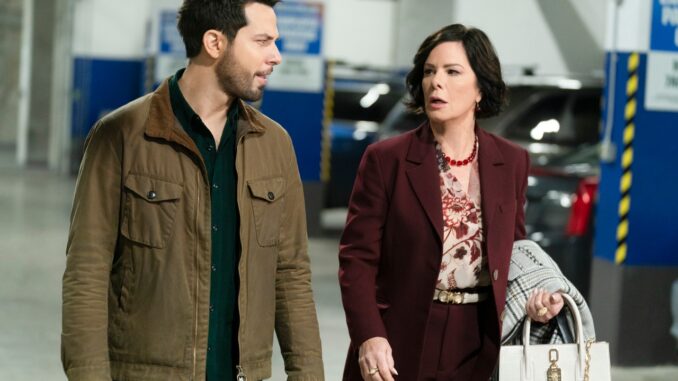
The Case of the Cancelled Courtroom and the Rising Tide of Fan Fury: A Look at the So Help Me Todd Uprising
The gavel slammed down, not in the courtroom of CBS's "So Help Me Todd," but in the network's boardroom, sealing the fate of the quirky legal dramedy after just two seasons. The resulting silence, however, was short-lived. A roar of online protest erupted, fueled by dedicated viewers who saw in the show more than just a lighthearted procedural. The cancellation of "So Help Me Todd" became a lightning rod, sparking fan outcry and the inevitable petitions, highlighting the growing power of audiences and the evolving landscape of television consumption.
The show's appeal, and thus the reason for the passionate backlash, lay in its unique blend of comforting formula and unconventional characters. Marcia Gay Harden, as the meticulous and emotionally guarded lawyer Margaret Wright, provided a strong anchor, while Skylar Astin, as her wayward but brilliant private investigator son Todd, injected a chaotic, yet lovable energy. The central conflict – a mother and son forced to work together despite their drastically different personalities and approaches to life – resonated with many, reflecting the universal struggles and eventual triumphs of familial relationships. It was a show that offered both the satisfying predictability of a case-of-the-week structure and the engaging unpredictability of its central dynamic.
The cancellation, therefore, felt like a personal affront to viewers who had invested in these characters and their ongoing storylines. The petitions, rapidly accumulating signatures, weren't merely pleas for more episodes. They were declarations of loyalty, testaments to the show's ability to connect with its audience on a deeper level. One online petition, in particular, argued that "So Help Me Todd" offered a refreshing alternative to the often-grim and morally ambiguous narratives dominating contemporary television. It was a show that celebrated family, albeit in its own dysfunctional way, and provided a much-needed dose of optimism in a world often saturated with negativity.
Furthermore, the fan outcry was fueled by the perception that the show was cut short prematurely. The second season finale left viewers on a cliffhanger, dangling the promise of further development and resolution for its characters. The abrupt ending, without proper closure, left a void for dedicated fans who felt robbed of the satisfying conclusion they deserved. This sense of injustice intensified the online activism, transforming casual viewers into vocal advocates for the show's survival.
The "So Help Me Todd" cancellation also highlights the evolving relationship between networks and their audiences in the age of streaming. While network television still holds significant sway, viewers are increasingly accustomed to having their voices heard through online platforms. The success of campaigns like the one surrounding "So Help Me Todd" demonstrate the power of social media in mobilizing fans and putting pressure on networks to reconsider their decisions. These online petitions, coupled with organized letter-writing campaigns and social media hashtags, create a visible and undeniable demonstration of audience support.
However, the power of fan outcry is not absolute. While the petitions surrounding "So Help Me Todd" have garnered significant attention, the chances of the show being revived remain slim. Networks make decisions based on a complex interplay of factors, including ratings, production costs, and overall programming strategy. A vocal online fanbase, while important, is often just one piece of the puzzle.
Despite the uncertain future of "So Help Me Todd," the fan outcry serves as a powerful reminder of the importance of connection in television. The show fostered a genuine bond with its audience, offering a unique blend of humor, heart, and compelling characters. While its cancellation may ultimately stand, the outpouring of support demonstrates the enduring impact a show can have on its viewers and the increasingly assertive role they are playing in shaping the landscape of television entertainment. The gavel may have fallen on "So Help Me Todd," but the echo of its fans' voices continues to resonate, a testament to the power of connection and the unwavering dedication of a loyal audience.
